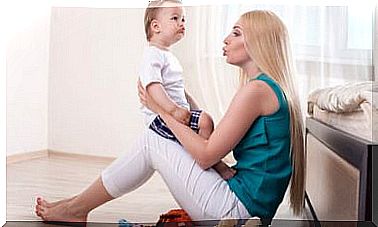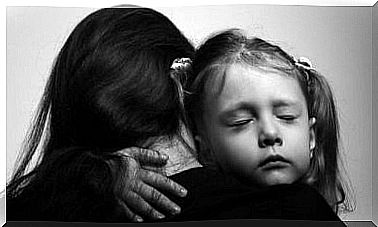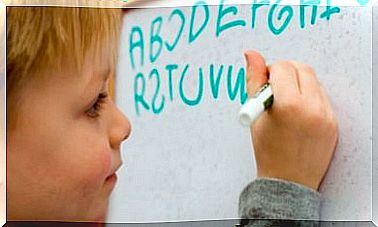5 Types Of Tantrums Your Child Can Have
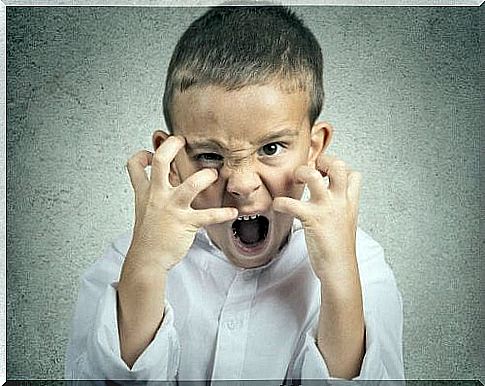
According to experts on the subject, tantrums are defined as those explosions or emotional outbursts of anger in children between 1 and 5 years of age. They appear through sudden uncontrolled anger and crying, in most cases for no apparent reason. Do you want to know what types of tantrums exist? Here are the five most common.
Types of tantrums in children
When children cry, kick and scream with great force throwing themselves to the ground, they usually do not listen to reasons. Most parents are afraid of these tantrums, so it is important to know and differentiate the types of tantrums, their origin and the way we should react in each case.
1.- Tantrums to get attention or demand something
This tantrum is the most used in children to try to exercise parental control and dominate them. They usually do it to request more attention, either because they feel jealous for one of their siblings or just to spend more time with them.
Experts say that this tantrum is sometimes due to the child feeling isolated. The best attitude to take is to let him calm down to observe the reasons that have led him to react this way.
It may also be due to the fact that their requirements have not been heeded or due to simple manipulation. If the answer is the first option, it is important that you pay more attention when he talks to you, and if it is the second, that you show him that he cannot have everything he wants all the time.
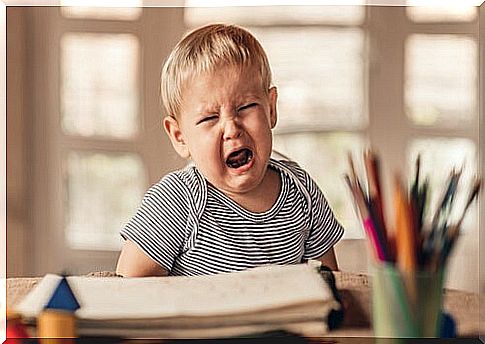
In these types of attention-grabbing tantrums, children cry, kick, and throw themselves to the ground, sometimes even stopping breathing for a few seconds. The most advisable thing is not to give in to their request, because in this way they will be managing to manipulate you. You should ignore it completely, unless it is causing some major deterioration around it. Leave him alone for a moment, and after he calms down, try to talk to him and make him see reason.
2.- Tantrums due to frustration or fatigue
This type of tantrum is very common. It is just the sign that he is small and does not control his feelings and emotions, therefore he cries and becomes irritable.
Frustration is often the result of not understanding or understanding some of the instructions assigned to it. If this is the case, it is important that you take the time to explain things to him and talk about how he feels. Also, it is good that you celebrate their achievements and efforts, that will strengthen their self-esteem.
On the other hand, the child may throw a tantrum simply because he is tired and needs to sleep. In these cases, you should take him to his bed and let him rest, after a while the tantrum will have been forgotten.
3.- Tantrums for refusing to do something
First of all, you should analyze if it is a situation that causes him some type of stress or anxiety, since then you should not force the child to do certain things. But if not, then you should downplay it and not give in.
This type of tantrum usually occurs when they refuse to go to bed, go to school, or do a task that has been assigned to them. Above all, the important thing is that you do not allow yourself to be manipulated by their apparent sadness or anger.
Sometimes it is possible to avoid different types of tantrums by giving them advance notice of what to do.
4.- Destructive tantrums
These types of tantrums are very aggressive and can sometimes end up producing unpleasant episodes. In them, children can get out of control and, in addition to screaming and crying, hitting or throwing objects in a way -many times- involuntarily.
If this happens , the best solution is to take your child to a quiet place and leave him alone as punishment so that he can reflect. After 10 minutes, try to establish a dialogue with him in which you explain the reasons why he can never react violently.
5.- Self-injurious tantrum
These are tantrums in which children lose control completely and end up hurting other people or even themselves.
To avoid accidents, you should hold him in your arms and speak to him while keeping calm. After a few minutes he will come to his senses or get tired of fighting with you.

If your child tends to have these types of reactions, it is important that at times when he is not angry you talk to him and explain the alternatives he has to show his disagreement or anger. Above all, we must not allow him to hit himself, much less hit others.
As parents, it is very important to understand and understand how our children’s brains work, because in most cases they do not act calculating and intentionally. In short, they are not yet in control of their emotions or their actions, simply because their brain is developing and they do not yet have the ability to manage their actions.


